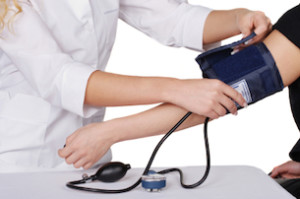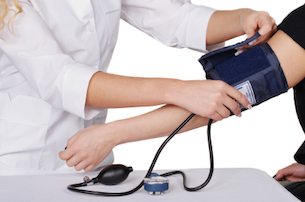 Health checks are essential. Early detection of health issues means they can be most easily remedied. A ‘head in the sand’ approach has never prevented, nor cured, anything.
Health checks are essential. Early detection of health issues means they can be most easily remedied. A ‘head in the sand’ approach has never prevented, nor cured, anything.
It’s fair to say that many health checks aren’t high on the ‘fun’ list, so it is easy to see why we procrastinate about having them sometimes.
Make a list of the checks you should have, then make a plan. Are you the type of person who like to have them all done in one fell swoop, or do you prefer to have one at a time, with a break in between? Whichever approach you take, ask your doctor to remind you, or set an annual reminder in your calendar.
The basic checks that adults should have regularly are listed below. If you have other specific conditions or concerns, speak to your doctor about more detailed tests. If you ever experience a concern about your health, don’t procrastinate. Seek medical advice immediately: you will either be treated, or have your mind put at ease – both are better options than worrying!
Prostate
Prostate cancer is one of the most prevalent affecting men. 1 in 7 men will be diagnosed during their lifetime, and men + 65 years of age have an increased risk of developing prostate cancer. If caught early and treated, it has a very good survival rate. Initially, you simply have a blood test, known as the prostate-specific antigen test or (PSA). Following that an examination or small biopsy may be carried out, but the earlier any abnormalities are caught the better.
Mammograms
Women over the age of 40 should be having regular mammograms (every two years). This low dose x-ray of the breast tissue is free in New Zealand for women aged 45-69. Over the age of 70, you should still be having regular checks. 70% of breast cancers occur in women over the age of 50- always report any unusual lump or change in your breasts to your doctor immediately.
Gynaecological checkups
Your medical history will determine how often you need specific tests, including pap smears. Follow your GP’s advice and always report any anomalies.
Heart health
Your blood pressure, cholesterol and blood sugar levels should be checked regularly. These are simple, barely invasive tests. If you are found to have elevated levels, there are many lifestyle factors which you can adjust to make fast and measurable improvements, along with medication for more serious cases.
Skin checks
The New Zealand sun is harsh and many of us grew up in a time before sunscreen was as effective and widely used as it is today. Your GP can perform a skin check, or there are other options if you are concerned about a mole or change in your skin. We have a very high incidence of skin cancer in New Zealand, so it is important, regardless of your skin type, to be checked at least annually.
Vision, hearing and dental checks
Vision and hearing can often decline gradually, so you can live with it without noticing.
Your teeth need regular maintenance. Annual check ups for all three are recommended.
Mental health
If you regularly experience extreme mood swings, sadness, lethargy or other indicators of depression, seek help. If others suggest that you may be depressed, accept that they may have a point. Depression can affect your overall outlook and health and can be successfully treated and managed. What’s going on in your mind is just as important as in the rest of your body!
Make time to stay healthy. Your body is very similar to your car in some ways – it needs to be well maintained, move regularly, well fuelled and well maintained.









Join the Discussion
Type out your comment here:
You must be logged in to post a comment.